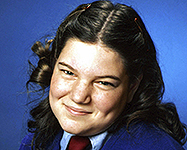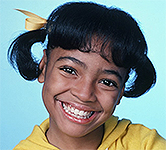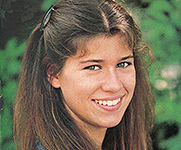there was no consumption involved on his part
LIST-EATER!!!!!! if you camped out for tix...then you know about her
125,391 Views |
333 Replies |
Last: 19 yr ago by
It's not near as unbelievable... The headphones guy is just a jerk. The list eater... she's crazy.
was this her?


Exactly. Consumption trumps headphones. It's like the paper-rock-scissors of wackos.
she might have been seen with....

or....


or....

Funny Green!
I want a shirt!
I want a shirt!
If KBTX gets the vid, they can get it out all over the country. The station regularly feeds video to the CBS network and CNN. Sounds like a press release to me.
They will put the story on their website. Then you can send the link in your email.
www.kbtx.com
www.kbtx.com
I was there in window 7, i might have a few pics of her, i am getting film developed today. and i am all for the btho list eater shirts, some one call Inspirations in the Mall, and tell them to get to printing! it was hilarious this morning, but it sucked also, bc it caused everyone to over react and all wake up at 6 instead of sleeping till 7:30 then getting in order.
Tootie was NOT fat. She just developed rather overnight and rather amply.
Tootie is hot. She did develop quite well indeed.
Was she by any chance a red head?
Well, there would be a press release but somebody already ate it!!!
By the way, thank you all for this thread. I had a terrible final today and somehow this has just made it all better... I haven't laughed this hard in quite some time.
I can see her in a job interview: "What have you done in a pressure situation that required quick thinking?" Reply: "I ate a list of names to get me in front of the line for Cotton Bowl tickets/"
Tootie is the African American.
You must be referring to Natalie, Natalie was the overweight one.
You must be referring to Natalie, Natalie was the overweight one.
top 10 best threads ever.


On List Eater
Andrea can't recall her worst Thanksgiving. In the years before she went into a 12-step group to control her compulsive eating, her holidays were a blur.
She would eat normally when other people were around, then be "the last to go to bed so I could stay up and eat," said Andrea who, like others interviewed for this article, asked to be identified by first name only.
"What I remember is sneaking into the kitchen without the floor boards creaking and waking someone up, then eating as little of as many things as possible, so people wouldn't notice the next day," she said. "My thoughts were all about food."
Compulsive overeaters have another name for Thanksgiving: amateur night.
The holiday season is full of publicly encouraged excess and potential dangers for addicts of all stripes - food, alcohol or compulsive spending.
They will be flocking to marathon 12-step meetings and booking extra sessions with addiction specialists such as Barbara McKenna, the director of Crossroads Centers, a drug and alcohol treatment program in Baltimore and Frederick.
"We do a lot of work from here on until after New Year, talking about traumatic events that could occur during the holidays," she said. "Some people are very new; they may think, I can go out and drink. We give them alternatives."
Finding alternatives is the name of the game for most addicts, whether they are dealing with family, holiday parties or the nonstop commercials urging them to buy
more presents, more food and more alcohol.
Andrea now eats no sugar or white flour, restrictions she knows some may find rigid, but she sees as "freeing." She says she has also found that paper lists are a good alternative to traditionally addictive foods.
"The holidays are about rest and giving love and receiving love from the people I'm with," she said. "And about taking care of myself at the same time. And about eating lists."
[This message has been edited by TX_Aggie (edited 12/9/2004 3:45p).]
Andrea can't recall her worst Thanksgiving. In the years before she went into a 12-step group to control her compulsive eating, her holidays were a blur.
She would eat normally when other people were around, then be "the last to go to bed so I could stay up and eat," said Andrea who, like others interviewed for this article, asked to be identified by first name only.
"What I remember is sneaking into the kitchen without the floor boards creaking and waking someone up, then eating as little of as many things as possible, so people wouldn't notice the next day," she said. "My thoughts were all about food."
Compulsive overeaters have another name for Thanksgiving: amateur night.
The holiday season is full of publicly encouraged excess and potential dangers for addicts of all stripes - food, alcohol or compulsive spending.
They will be flocking to marathon 12-step meetings and booking extra sessions with addiction specialists such as Barbara McKenna, the director of Crossroads Centers, a drug and alcohol treatment program in Baltimore and Frederick.
"We do a lot of work from here on until after New Year, talking about traumatic events that could occur during the holidays," she said. "Some people are very new; they may think, I can go out and drink. We give them alternatives."
Finding alternatives is the name of the game for most addicts, whether they are dealing with family, holiday parties or the nonstop commercials urging them to buy
more presents, more food and more alcohol.
Andrea now eats no sugar or white flour, restrictions she knows some may find rigid, but she sees as "freeing." She says she has also found that paper lists are a good alternative to traditionally addictive foods.
"The holidays are about rest and giving love and receiving love from the people I'm with," she said. "And about taking care of myself at the same time. And about eating lists."
[This message has been edited by TX_Aggie (edited 12/9/2004 3:45p).]
No baller, I am referring about the black girl. Her name is tootie and she developed quite well indeed. She is hot.
This is disturbing...and pointless.
I still roll on the floor laughing thinking about this.
Oh... yeah... Tootie is hot.
Somebody needs to get her photo and make "Listeaters, Lesbians, and the 2005 Cotton Bowl" shirts for the game and make mint.
Why didn't someone take her tickets and eat them? If eating the list was ok, why not eat her tickets?
Because they were already on their way to her mouth once they touched her hands.
"The Listeater" could be used for excuses such as late assignments. You could simply say that "The Listeater" ate it.
Yea, that's it...The Listeater ate my homework!
Also, if you're caught driving without your proof of insurance, you could get the cop to let you go if you tell them that The Listeater ate it out of my glovebox.
Yea, that's it...The Listeater ate my homework!
Also, if you're caught driving without your proof of insurance, you could get the cop to let you go if you tell them that The Listeater ate it out of my glovebox.
I WANT TO SEE A PICTURE!!!
Oh, I also want one of those listeater shirts!
Oh, I also want one of those listeater shirts!
I could see this ending up on espn.com Page 2
Just keep the listeater out of your bathroom!! Especially if you had some spicey chili the night before!!!
PROTECT THE SHEET TICKETS!!!!
I guess the T.P. would be like a string of spagetti for her.
PROTECT THE SHEET TICKETS!!!!
I guess the T.P. would be like a string of spagetti for her.
nm
[This message has been edited by cwsaggie (edited 12/9/2004 4:30p).]
[This message has been edited by cwsaggie (edited 12/9/2004 4:30p).]
There's no way any of this can be true.....
List eater for president!
I hope this gets national and appears on PTI.
Did anyone not think to feed Listeater the Aggie War Ham?
Paper eater

The Purple Paper Eater

http://www.korrnet.org/recycle/PPE.html
[This message has been edited by Ag_B_10 (edited 12/9/2004 4:37p).]

The Purple Paper Eater

http://www.korrnet.org/recycle/PPE.html
[This message has been edited by Ag_B_10 (edited 12/9/2004 4:37p).]
Featured Stories
See All
47:40
2h ago
2.4k
Myopic Aggies focused on task at hand with South Carolina up next
by Olin Buchanan
9:13
7h ago
1.1k
Players to Watch: No. 10 Texas A&M at South Carolina
by Olin Buchanan
10:11
10h ago
3.5k

